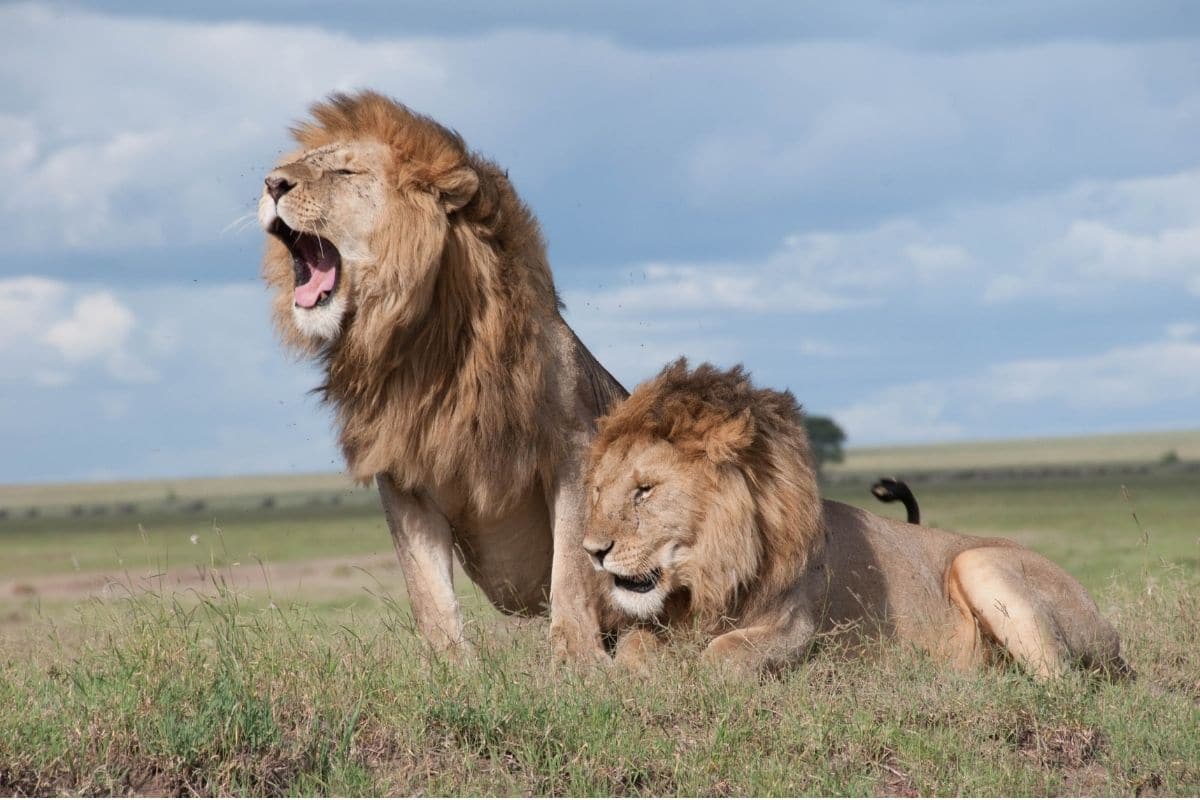
Leos are usually not that keen on making new friends. But after administration of the cuddle hormone, they are suddenly a lot nicer to each other.
Wild lions are fierce animals. The giant cats guard their territory with their lives and can mortally wound an invading enemy with a single move. While aggression is an advantage for apex predators in the wild, it poses a real challenge to lions in reserves or in captivity; a number that is increasing due to habitat loss. But a pinch of the cuddly hormone oxytocin seems to offer a solution.
Oxytocin (or the cuddle hormone) is released in the brain during certain pleasant or intense experiences, such as during mother bonding, friendships, romantic interactions and sex. It can even be released when you’re hugged by a romantic partner (which gave the hormone its distinctive nickname). The hormone thus seems to play an important role in social contacts and in feelings of pleasure.
The researchers conducted experiments with lions in a South African wildlife sanctuary. The team lured the lions to a fence so they could inject oxytocin into the lions’ noses using an object that looks like an antique perfume bottle.
more tolerant
It leads to a striking discovery. Because after the treatment, the researchers noted that the 23 lions that had been given a pinch of oxytocin were a lot friendlier to conspecifics. “You can see their facial features soften immediately,” said study researcher Jessica Burkhart. “They get a completely calm demeanor and relax completely. It is awesome.”
Why is it necessary?
You may wonder why such treatment is necessary. This is mainly due to the fact that nowadays more and more lions are forced to live in the same area. And when different groups are mixed together, things don’t always go well. “More and more protected areas and reserves are being fenced in these days,” Burkhart told Scientias.nl from. “As a result, lions can no longer spread naturally. They are then moved between locations by people. When lions arrive at a new location, they are often scared and aggressive towards other animals and people. But a single dose of oxytocin can make a difference.”
Less life-threatening
The team found that even a small dose had a big effect. “Domestic dogs receive up to 60 IU (International Unit; a unit of measure for a quantity of a substance, based on measured biological activity, ed.),” explains Burkhart. “A lion – which is 10 to 20 times larger – has already shown positive results at a dose of only 10 IU. That is very interesting.” It means that a small administration of the cuddling hormone makes encounters between lions a lot less life-threatening. “It also makes it easier for them to form a new flock,” Burkhart says.
How come the lions react so well to oxytocin? “All mammals have oxytocin peptides and receptors in their bodies and brains,” Burkhart explains when asked. “Lions are also very social. In general, more sociable animals have more oxytocin receptors. This is probably also the reason why lions are very sensitive to even a small dose.”
The effect of oxytocin is far-reaching. For example, it turned out that lions treated with oxytocin were much more tolerant and allowed conspecifics to come closer while they played with their favorite toy – a pumpkin. The researchers even saw the distance halved: from seven meters without oxytocin to 3.5 meters after the treatment. In contrast, that same tolerance was hard to find when it came to food, even after the cuddle hormone was given. In addition, the researchers found that the oxytocin-treated lions were a lot less vigilant about potential intruders. While untreated lions always answer the roars of unknown lions with ferocious roars, the treated lions remained silent. “This is a huge find,” Burkhart said. “It means that oxytocin can actually be used to bring unknown lions together.”
Easier
According to Burkhart, a pinch of oxytocin could make life easier for many lions. “The treatment is intended for lions rescued from the entertainment industry, among other things,” she says. “They are often starving or have been in cages that are too small so that they stay small and people can pet them. When they arrive in shelters, they are often in serious condition and have few social skills. Oxytocin is then a great tool. It makes it easier for them to return to normal life. The other sad reality is that as the human population inevitably increases, habitat loss will continue. Animals can no longer live in the wild as they once did. Oxytocin treatments are one approach that could be important for conservation efforts.”
With their study, published in the journal Iscience, see that the hugging hormone oxytocin can help bring together animals that are sociable, yet incredibly territorial. “We can now pair lions together so they don’t have to live solitary lives, improving both their well-being and health,” said Burkhart. “In addition, it can play an important role in management strategies when new troops need to be formed to keep genetics healthy.” Overall, even a little bit of oxytocin can make lions more curious and less anxious. And that makes making new friends a lot easier.
Source material:
†Oxytocin treatment can take lions from ferocious to friendly– Cell Press (via EurekAlert)
Interview with Jessica Burkhart
Image at the top of this article: Iurii Ivashchenko via Pexels